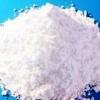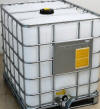Search for the supplies that you need here:
DMF Support and Documentations Available | |
 WHO-GMP Certified Good Manufacturing Practice Certified by World Health Organization |  WC, Written Confirmation for Active Substance to be imported into European Union (EU). |
Calcium Carbonate USP BP Ph Eur IP EP JP Analytical Reagent FCC Food Grade Manufacturers, Coated and DC Directly Compressible Calcium Carbonate Suppliers Exporters
Anmol Chemicals is a manufacturer supplier exporter of Calcium Carbonate & DC Directly Compressible Calcium Carbonate and it offers materials as per IP BP EP Ph Eur USP NF JP FCC Food Grade as per the the latest monograph at best prices. Anmol Chemicals Group, established in 1976, is the pioneer manufacturer of Specialty Chemicals, Pharmaceutical Excipients, Some API, Food Chemicals in India. Anmol Chemicals Group has manufacturing facilities spread across Western India, representatives in Houston, Chicago USA and Dubai, UAE. We also have toll manufacturing units for processing chemicals in a few countries around the world. We make IP, BP, EP, USP, NF, Ph. Eur., JP, FCC or Food Grade, Analytical Reagent Grade, LR or Laboratory Reagent Grades and Pure Grades of various chemicals. All our items are analyzed to meet the required standards. We can supply the product in grams for your laboratory trial and in tons for your plant scale jobs.
We manufacture Bulk Drugs / API, Excipients, Pharmaceuticals (IP BP USP NF Ph Eur EP JP), Specialty Chemicals (Pure/Reagent), Mineral Fortifiers (FCC). Our manufacturing facility is FDA approved and GLP, cGMP, ISO9001, ISO14001, ISO/IEC 17025, ISO22000, FSSC 22000, ISO45001, FSSAI, Kosher, HALAL, COPP, WHO-GMP certified and Written Confirmation (WC) is available. Solid materials can be customized for particle size, shape, and bulk density. We observe WHO Good Manufacturing Practices and Good Laboratory Practices. We are a government-recognized STAR Export House and "Authorised Economic Operator (AEO)" per Indian Customs.
All technical documents and DMF support available.
Calcium Carbonate MSDS or SDS of BP IP JP USP Analytical Reagent FCC Food Grade Manufacturers

Synonyms: Carbonic acid calcium salt; Calcite
CAS Number: 471-34-1, Molecular Weight: 100.09, Chemical Formula: CaCO3 EINECS EC Number: 207-439-9
We also offer Coated, DC Directly Compressible Calcium Carbonate and the specifications of the same are listed as the last item.
Calcium Carbonate USP
CaCO3 100.09
Carbonic acid, calcium salt (1:1)
Calcium Carbonate, dried at 200 for 4 hours, contains calcium equivalent to not less than 98.0 percent and not more than 100.5 percent of CaCO3.
Packaging and storage— Preserve in well-closed containers.
Identification— The addition of acetic acid to it produces effervescence (presence of carbonate), and the resulting solution, after boiling, responds to the tests for Calcium.
Loss on drying— Dry it at 200 for 4 hours: it loses not more than 2.0% of its weight.
Acid-insoluble substances— Mix 5.0 g with 10 mL of water, and add hydrochloric acid, drop wise, with agitation, until it ceases to cause effervescence, then add water to make the mixture measure 200 mL, and filter. Wash the insoluble residue with water until the last washing shows no chloride, and ignite: the weight of the residue does not exceed 10 mg (0.2%).
Limit of fluoride— The limit is 0.005%.
Arsenic— The limit is 3 ppm.
Barium— A platinum wire, dipped in the filtrate obtained in the test for Acid-insoluble substances and held in a non-luminous flame, does not impart a green color.
Lead —the limit is 3 ppm.
Iron— To pass the test
Mercury— the limit is 0.5 µg per g.
Limit of magnesium and alkali salts— Mix 1.0 g with 35 mL of water, carefully add 3 mL of hydrochloric acid, heat the solution, and boil for 1 minute. Rapidly add 40 mL of oxalic acid, and stir vigorously until precipitation is well established. Add immediately to the warm mixture 2 drops of methyl red TS and then 6 N ammonium hydroxide, drop wise, until the mixture is just alkaline. Cool to room temperature, transfer to a 100-mL graduated cylinder, dilute with water to 100 mL, mix, and allow to stand for 4 hours or overnight. Filter, and to 50 mL of the clear filtrate in a platinum dish add 0.5 mL of sulfuric acid, and evaporate the mixture on a steam bath to a small volume. Carefully heat over a free flame to dryness, and continue heating to complete decomposition and volatilization of ammonium salts. Finally ignite the residue to constant weight.
The weight of the residue does not exceed 5 mg (1.0%).
Heavy metals— the limit is 0.002%.
Organic volatile impurities— meets the requirements.
Calcium Carbonate BP Specifications
CaCO3 -- 100
Action and use: Antacid.
DEFINITION
Content
98.5 per cent to 100.5 per cent (dried substance).
CHARACTERS
Appearance
White or almost white powder.
Solubility
Practically insoluble in water.
IDENTIFICATION
A. It gives the reaction of carbonates
B. 0.2 ml of solution S (see Tests) gives the reactions of calcium
TESTS
Solution S
Dissolve 5.0 g in 80 ml of dilute acetic acid R . When the effervescence ceases, boil for 2min. Allow to cool, dilute to 100 ml with dilute acetic acid R and filter, if necessary, through a sintered-glass filter.
Substances insoluble in acetic acid:
Maximum 0.2 per cent.
Chlorides:
Maximum 330 ppm.
Sulphates: Maximum 0.25 per cent.
Arsenic: Maximum 4 ppm, determined on 5 ml of solution S.
Barium: To 10 ml of solution S add 10 ml of calcium sulphate solution. After at least 15 min, any opalescence in the solution is not more intense than that in a mixture of 10 ml of solution S and 10 ml of distilled water R.
Iron: Maximum 200 ppm.
Magnesium and alkali metals: Maximum 1.5 per cent.
Heavy metals: Maximum 20 ppm.
Calcium Carbonate FCC Food Grade as per US Food Chemical Codex
CaCO3 Formula wt 100.09
CAS: [471-34-1]
DESCRIPTION
Calcium Carbonate occurs as a fine, white or colorless, microcrystalline powder. It is stable in air, and it is practically insoluble in water and in alcohol. The presence of any ammonium salt or carbon dioxide increases its solubility in water, but the presence of any alkali hydroxide reduces the solubility.
Function: pH control agent; nutrient; dough conditioner; firming agent; yeast nutrient.
REQUIREMENTS
Identification: A sample dissolves, with effervescence, in 1 N acetic acid, in 2.7 N hydrochloric acid, and in 1.7 N nitric acid, and the resulting solutions, after boiling, give positive tests for Calcium.
Assay: Not less than 98.0% and not more than 100.5% of CaCO3 after drying.
Acid-Insoluble Substances: Not more than 0.2%.
Arsenic: Not more than 3 mg/kg.
Fluoride: Not more than 0.005%.
Lead: Not more than 3 mg/kg.
Loss on Drying: Not more than 2%.
Magnesium and Alkali Salts: Not more than 1%.
Calcium Carbonate Analytical Reagent Specifications
CaCO3
Formula Wt 100.09
CAS Number 471-34-1
| Assay (dried basis) | 99.0% CaCO3 min |
MAXIMUM ALLOWABLE
| Insoluble in dilute hydrochloric acid | 0.01% |
| Ammonium hydroxide precipitate | 0.01% |
| Chloride (Cl) | 0.001% |
| Sulfate (SO4) | 0.0015% |
| Ammonium (NH4) | 0.003% |
| Barium (Ba) | 0.01% |
| Heavy metals (as Pb) | 0.001% |
| Iron (Fe) | 0.003% |
| Magnesium (Mg) | 0.02% |
| Potassium (K) | 0.01% |
| Sodium (Na) | 0.1% |
| Strontium (Sr) | 0.1% |
Precipitated Calcium Carbonate IP JP Grade is also offered.
We also offer Coated and Directly Compressible Calcium Carbonate.
For ease of swallowing, the tablets should be made as small as possible. The high density of calcium carbonate allow the maximum antacid active to be packed in a small tablet. Calcium carbonates must be granulated before converting to tablets though they have poor compressibility, so are not directly compressible. Granulation involves mixing the calcium carbonate with some binder such as starch, acacia gum or maltodextrin, usually at a 5 to 10 percent binder level and then agglomerating to a larger particle. All the logic is covered in our directly compressible calcium carbonate product.
Specifications of DC Directly Compressible Calcium Carbonate (90% or as required)
Description: White to off-white granular powder
Assay: Calcium Carbonate minimum 90% or as required.
Binder: Maltodextrine
Tapped density: Not less than 0.9 m/cc
Moisture / LOD @ 105C: Not more than 1.5%
Acid insoluble substances: Not more than 0.2%
Arsenic: Not more than 1ppm
Heavy metals as Pb: Not more than 5ppm
Lead Pb: Not more than 0.5ppm
Cadmium: Not more than 1ppm
Chloride: Not more than 330ppm
Sulphate: Not more than 0.25%
Mercury: Not more than 0.1ppm
Iron: Not more than 200ppm
Magnesium & Alkali metals: Not more than 1%
Particle size distribution:
Through 16 mesh: Not less than 98%
Through 18 mesh: Not less than 95%
Through 200 mesh: Not more than 20%
On 60 mesh: Not more 75%
Microbial Count: Total plate count: Not more than 1000cfu/gm; Yeast & Mould count: Not more than 100cfu/gm.
We also manufacture EP Grade of Calcium carbonate.
Keywords: Carbonic acid calcium salt, Calcite Calcium carbonate IP BP Ph Eur EP USP Analytical Reagent FCC Food Grade CAS Number 471-34-1 Manufacturer Supplier Exporter Monograph Uses Chemical Molecular Formula Weight.



Manufacturer Supplier Exporter
ANMOL CHEMICALS Private Limited
Representatives in Houston, Chicago and New York, USA
TEL: (OFF) +91 22 23726950, +91 22 23774610, +91 22 23723564
Taloja Navi Mumbai, Banglore, INDIA
e-mail: info@anmol.org
Copyright and Usual Disclaimer is Applicable
Last updated 8-oct-25
Exporters to USA, Canada, UAE, Kuwait, Qatar, Gautemala, Tunisia, Europe, South Africa, Bangladesh, Sri Lanka, Tanzania, Kenya, Egypt, Iraq, Turkey, Israel, Vietnam, Nigeria, Uganda, Brazil, Chile, Argentina, Dubai, UAE, Saudi Arabia, Cameroon, Mexico, Brazil, Chile, Argentina, Korea, Thailand, Malaysia, Indonesia, Jakarta, Australia, China, Germany, France, etc.
Representatives in New York, Houston - Texas, Chicago - Illinois, Los Angeles.
All products are Sold for Industrial and Laboratory Use only.
Fast Selling IP BP Ph Eur EP USP NF JP Analytical Reagent FCC Food Grades of Chemicals by Anmol Chemicals
Ammonium Persulfate --- Acetic Acid Glacial --- Aluminum Chloride --- Ammonium bicarbonate --- Benzyl Alcohol --- Butylated Hydroxyanisole --- Butylated Hydroxytoluene --- Boric Acid --- Calcium Butyrate --- Calcium Chloride --- Calcium Hydroxide --- Calcium Lactobionate --- Calcium Saccharate --- Carbamide Peroxide --- Calcium Oxide --- Calcium Sulfate --- Chromic Chloride --- Fumaric Acid --- Magnesium Butyrate --- Magnesium Chloride --- Magnesium Sulfate --- Malic Acid --- Maleic Acid --- Manganese Chloride --- Manganese Sulfate --- Octyldodecanol --- Oleic acid --- Phenylethyl Alcohol --- Propylene Carbonate --- Potassium Hydroxide Pellets --- Potassium Alum --- Selenious Acid --- Sodium Acetate --- Sodium Bromate --- Sodium Selenite --- Sodium Perborate --- Sodium Hydroxide --- Sodium Sulphate --- Sodium Sulfide --- Sodium Thiosulfate --- Urea --- Zinc Chloride --- Zinc Sulphate ---
We also offer Coated and Directly Compressible Calcium Carbonate.
Calcium Carbonate
IP BP Ph Eur USP Analytical Reagent LR FCC Food Grades Manufacturers



















